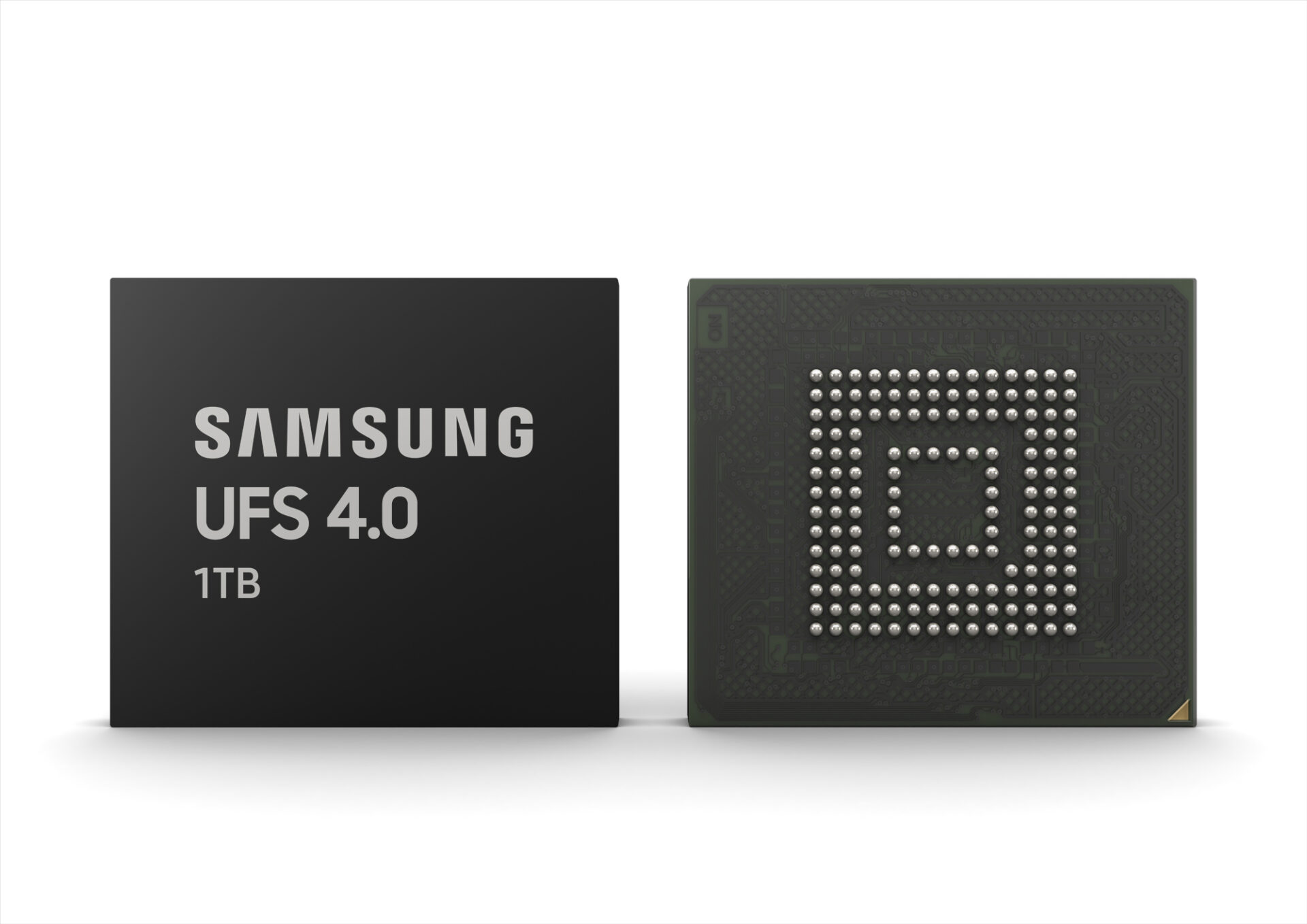
Samsung’s Newest Phone Storage to Offer 2x the Performance

Image: Samsung Semiconductor
Samsung Semiconductor on Tuesday unveiled the Universal Flash Storage (UFS) 4.0 storage solution, touting it as “the industry’s highest performing” storage tech.
BREAKING: Samsung has developed the industry's highest performing Universal Flash Storage (UFS) 4.0 storage solution, which has received JEDEC® board of director approval. What is UFS 4.0 and what does it mean for the future of storage? Read on to learn more. pic.twitter.com/4Wxdu0J2PD
— Samsung Semiconductor (@SamsungDSGlobal) May 3, 2022
UFS is a storage standard that offers high read/write performance and reliability while consuming minimal power, making it ideal for use in smartphones, automotive systems, and more.
Samsung’s UFS 4.0 storage solution uses the latest Joint Electron Device Engineering Council (JEDEC) standard specification, and recently received approval from the Council’s board of directors.
UFS 4.0 will succeed UFS 3.1, which is commonly used by smartphones and other devices today, and bring significant improvements over its predecessor.
The new storage solution doubles the per-lane speed of UFS 3.1 to 23.2Gbps, doubling the total bandwidth and making the standard ideal for next-generation 5G smartphones and automotive systems, along with augmented reality (AR) and virtual reality (VR) applications.
Samsung’s implementation of UFS 4.0, which will feature the company’s 7th-generation V-NAND and a proprietary controller, will offer sequential read speeds of up to 4,200 MB/s and sequential write speeds of up to 2,800 MB/s. These speeds are comparable to most desktop NVMe SSDs and exceed those offered by Apple’s iPhone 13 (which uses a mobile implementation of NVMe).
To top it all off, UFS 4.0 is 46% more power efficient than UFS 3.1, delivering a sequential read speed of 6.0 MB/s per mA of juice.
UFS 4.0 storage will come in a maximum package size of 11mm x 13mm x 1mm and will be available in storage configurations of up to 1TB. Samsung expects to start mass production of UFS 4.0 storage in the third quarter of this year.
“By collaborating with smartphone and consumer device manufacturers globally, we are working vigorously to foster an ecosystem for UFS 4.0 to drive the market for high-performance mobile storage solutions,” said Samsung Semiconductor.
As it is for most cutting-edge technologies, UFS 4.0 storage will be pretty expensive at first as production scales up. We will likely see manufacturers transition higher-end devices and applications to UFS 4.0 while sticking with UFS 3.1 for mid-range and lower-end products.

